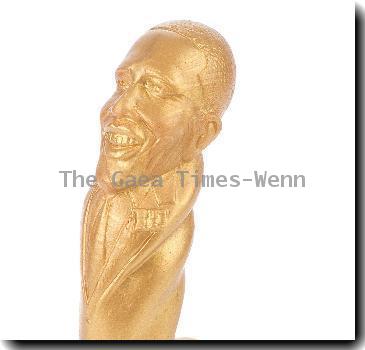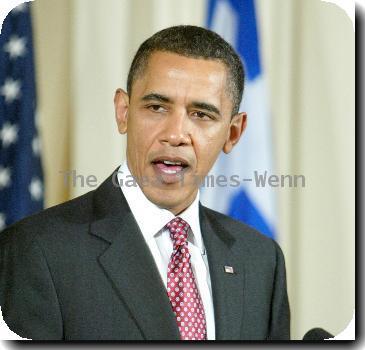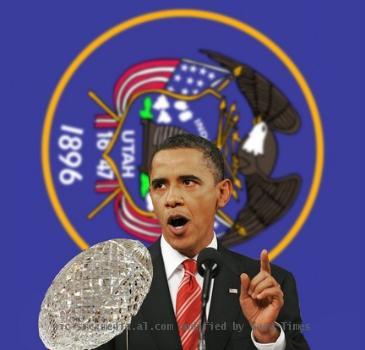As Mideast summit starts, Hamas says Abbas has no right to negotiate on behalf of Palestinians
By Karin Laub, APWednesday, September 1, 2010
Hamas leader rejects talks with Israel
GAZA CITY, Gaza Strip — The top Hamas leader in the Gaza Strip rejected compromise with Israel in a fiery speech Wednesday, a day after gunmen killed four Israelis in a strong reminder that the Islamic militant group cannot be ignored in any Mideast deal.
President Barack Obama denounced the West Bank ambush as he launched a two-day summit marking the first Israeli-Palestinian negotiations in nearly two years.
“The message should go out to Hamas and everyone else who is taking credit for these heinous crimes that this is not going to stop us,” he said after greeting Israeli Prime Minister Benjamin Netanyahu at the White House.
Hamas has claimed responsibility for Tuesday’s shootings, a vivid reminder that the Iranian-backed group may be locked out of the peace negotiations but remains a key player in determining their outcome.
Late Wednesday, gunmen wounded two Israelis in a drive-by shooting in the northern West Bank, the military said. Assailants in a car overtook an Israeli vehicle and opened fire, seriously wounding an Israeli man. The vehicle crashed, injuring a woman.
In a text message to reporters early Thursday, Hamas claimed responsibility.
The method resembled the fatal shooting on Tuesday in the southern part of the territory.
In an interview with AP Television News just before the Wednesday shooting, Gaza strongman Mahmoud Zahar indicated that more attacks could be expected. “Our resistance is continuous,” he said. “We have to concentrate on the West Bank in order to achieve (its) liberation.”
Earlier, in an address to Hamas members, Zahar said the movement would resist peace efforts and criticized the Palestinian president for joining the negotiations.
“Today marks the start of direct negotiations between someone who has no right to represent the Palestinian people and the brutal occupier, to provide a cover for Judaizing Jerusalem and stealing the land,” Zahar said.
Palestinian President Mahmoud Abbas has been locked in a fierce rivalry with Hamas since the group seized Gaza from his forces in a violent takeover in 2007, leaving him only in control of the West Bank.
In a swift response to the shooting, Abbas’ forces rounded up 250 low and midlevel Hamas supporters throughout the West Bank in what the group said was the largest sweep in recent memory. Hamas officials called the roundup arbitrary and an act of treason.
Abbas and Netanyahu are in Washington for a series of talks aimed at creating an independent Palestinian state alongside Israel within a year. Negotiations are to focus on core issues of the conflict, including the status of east Jerusalem, which the Palestinians want as capital of their future state but Israel also claims.
Chances for a deal appear slim, both because Abbas and Netanyahu are far apart on key issues, and because Hamas is increasingly entrenched in Gaza.
In the past year, some Hamas leaders have hinted that the group would accept the establishment of a Palestinian state in the West Bank, Gaza and east Jerusalem. The group also had a previous understanding with Abbas that he could negotiate on behalf of the Palestinians, provided he presents any deal to a referendum.
But the West has rejected Hamas feelers, insisting it first renounce violence and clearly recognize Israel’s right to exist. Meanwhile, relations between Hamas and Abbas deteriorated as reconciliation efforts ran aground.
Hamas leaders have sharply criticized Abbas in recent days for agreeing to resume negotiations with Israel.
“The enemy of the Palestinian people is the Zionist enemy,” Zahar said.
Zahar rejected the idea of compromise with Israel, saying that “liberating” all the land between the Mediterranean and the Jordan River — a reference to Israel’s destruction — is a moral and religious duty. He said Palestinians must not abandon armed resistance against Israeli occupation.
The group — shunned by the West and Israel as a terror organization — possesses a large arsenal of rockets that it could launch at Israeli border towns. But Hamas has largely refrained from attacks since suffering heavy losses in an Israeli offensive early last year.
The main Mideast mediators — the United States, the United Nations, Europe and Russia — have not spelled out how Gaza fits into their peace plans. Abbas could only implement a peace deal if he either reaches a power-sharing deal with Hamas, or if Hamas decides to moderate. Both seem unlikely at this point.
Egyptian President Hosni Mubarak wrote in an op-ed piece in The New York Times on Tuesday that reconciliation between Hamas and Abbas’ Fatah movement is “critical to achieving a two-state solution” and renewed an offer of Egyptian mediation.
Hamas expert Khaled Hroub said the group would keep acting as a spoiler if it is not accommodated.
“You have to engage with Hamas — not because you like or dislike them,” Hroub said. “Because, pragmatically these are the people who can deliver.”
In Tuesday’s shooting, Palestinian gunmen opened fire on a car, killing the four Israeli settlers inside, including a pregnant woman, near the West Bank city of Hebron. Hundreds of people attended funerals for the victims on Wednesday, including a large ceremony at the settlement near Hebron where they lived.
The violence put new pressure on Netanyahu to resume construction in West Bank settlements when a freeze expires on Sept. 26. The Palestinians have threatened to walk out of negotiations if building resumes.
Netanyahu has not said what he will do.
On Wednesday, Yesha Council, which represents the settlers, symbolically restarted a handful of construction projects in the West Bank. Israeli police did not interfere, but it’s not clear how much the settlers could realistically build.
Some 300,000 Israelis now live in West Bank settlements, along with nearly 200,000 others in east Jerusalem. The Palestinians claim both areas, captured by Israel in the 1967 Mideast war, for their future state.
Laub reported from Ramallah, West Bank. Associated Press writer Mohammed Daraghmeh also contributed to this report from Ramallah.
Tags: Barack Obama, District Of Columbia, Gaza City, Gaza Strip, Hebron, Israel, Jerusalem, Middle East, North America, Palestinian Territories, Territorial Disputes, United States, West Bank







